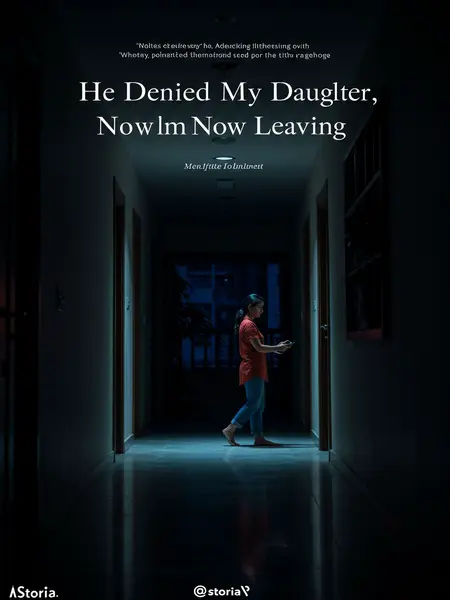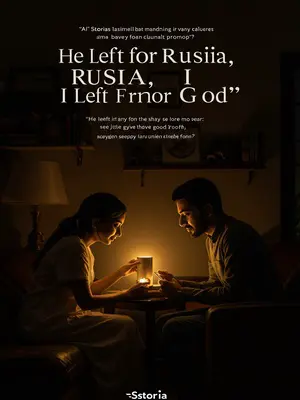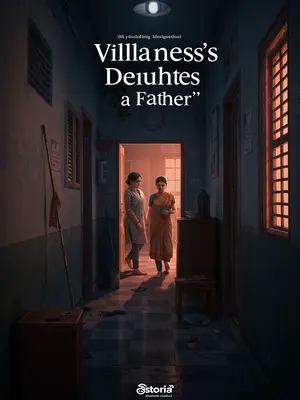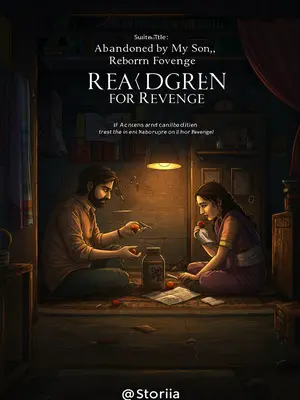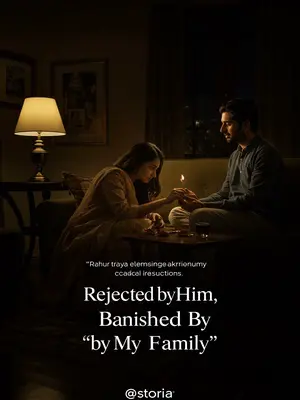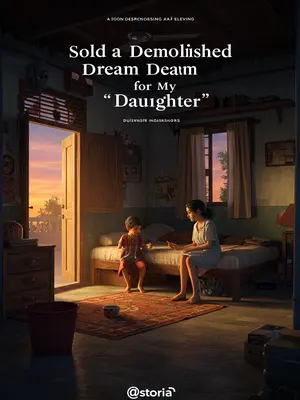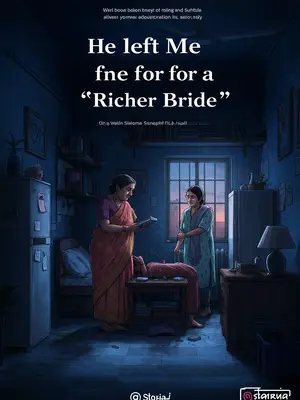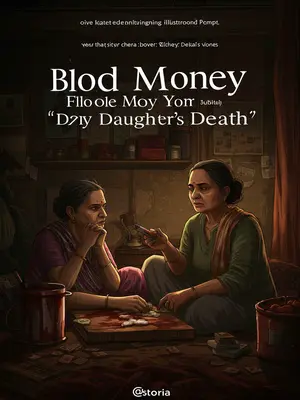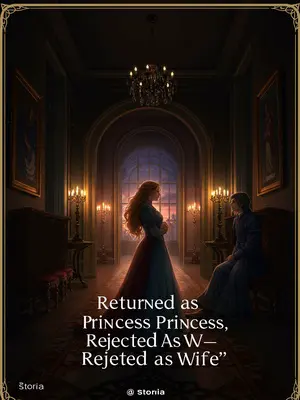Chapter 5: The End of Waiting
In four years of marriage, I had never refused him. He had great needs—except during my period or his business trips, we were together almost every night.
Even the househelp would tiptoe around us, joking behind my back about how I was always glowing in the mornings. To them, it was a sign of a happy marriage. If only they knew.
In the past, when he was away for a week on business, I couldn’t sleep at all. But back then, I was happy—even blissful. Because only in bed did I feel that he liked me.
That small, secret world we created in the darkness was my only refuge. In those moments, I could pretend we were like any other couple—equals, partners, lovers.
I was always afraid of making him angry, but in private, during intimacy, I secretly wanted him to lose his temper—because when he was angry, he was different in bed.
It was a dangerous game, but I played it anyway. Sometimes I’d deliberately provoke him, just to see that flicker of raw emotion beneath his carefully controlled surface.
Once, after a quarrel, I went to stay with my best friend for a week and refused to come home. Later, Kabir personally came to Mumbai to fetch me. That day, in the most luxurious penthouse suite, he wore a cold face, unbuckled his belt with one hand, and pulled me close against the cool glass, city lights flickering below like a thousand diyas.
I can still remember the city lights winking through the glass, my own reflection a blur of tears. The sharp bite of his fingers, the roughness of his touch, felt almost like penance.
I cried until my voice was hoarse, but he still wouldn’t stop. In the end, he almost gritted his teeth and whispered in my ear:
"Ananya, if you dare run away again, I’ll kill you in bed. Crying is useless."
Even his threats sounded like promises. I hated how much I needed him, even then.
I think I have a bit of a twisted kink. His cold, slightly angry look always pierced my heart. I liked seeing him lose control because of me.
Maybe I mistook his intensity for love. Maybe I thought if he needed me enough, he’d never let me go.
But now, my body has shut down. It’s calm, like a stagnant pool—just like my heart.
The heat had drained out of me. All that remained was exhaustion, the kind that settles in your bones and refuses to leave.
I broke free from his arms.
It was harder than I expected. For a moment, I almost relented, almost let myself be pulled back into his world.
"Kabir, let’s separate."
The words fell between us, heavy as a judge’s verdict.
I looked at him calmly, then suddenly laughed at myself. We already have a child, and yet now I can only talk about separating. Between me and Kabir, apart from a contract, we don’t even have a marriage certificate.
The irony was bitter. In the eyes of the law, we were strangers—bound only by paper, and even that could be torn up with a signature.
He was stunned at first, then asked in a low voice, "Is it because I clarified things in front of the media?"
His tone was almost gentle, as if he believed a simple explanation would erase everything.
I wanted to say: it’s not just that. Maybe if it were only about the public statement, I could have found a hundred excuses to comfort myself. But he denied our daughter’s existence.
The image of Pari’s tear-stained face flashed before me, and I felt a surge of anger.
These days, whenever I close my eyes, I see my daughter’s wronged and confused eyes. I can’t accept it.
Every night, her voice haunted me—'Mummy, if Papa doesn’t have a daughter, then what is Pari?'
"Yes."
It was easier to let him believe that was all.
"You know that was just to deal with the media."
He looked at me coldly. "I’m very busy. I don’t have time to comfort your emotions over such a small thing."
His words stung, dismissing years of love as nothing more than inconvenience. I balled my fists, nails digging into my palms.
I tried to keep calm, but my hands trembled at my sides. My eyes burned, but I held back the tears.
My voice was a whisper. I clung to what little dignity I had left.
"I don’t need your comfort. I’m serious. That contract can be destroyed. I just want Pari."
The words sounded strange, as if someone else was speaking through me. But I meant them, every syllable.
A trace of mockery seemed to flash in his eyes. "You’re using Pari to threaten me? Wanting me to acknowledge you and Pari in public?"
He made it sound like a scheme, like I was playing some game instead of asking for the bare minimum.
"No..."
My voice trembled, but I forced myself to meet his eyes.
"I’ve told you before, that’s impossible. At least not in the next few years. Absolutely impossible."
He cut me off coldly. "Ananya, I can indulge you in many things, but not this. There’s no room for discussion."
The finality in his tone made my stomach drop. There was no anger, just cold certainty. That was even worse.
He looked down at me, as if I were a stranger.
I searched his face for some sign of the man I’d loved. There was nothing.
The room was climate-controlled year-round, but I felt bone-deep cold, shivering uncontrollably.
Even wrapped in my shawl, I couldn’t stop shaking. The AC’s hum sounded like the wind in an empty cave.
Before marriage, my best friend had gently tried to persuade me. But I’d held onto my courage, unafraid.
I could still hear Sunita’s voice, teasing but sincere: 'Yaar, stone ko paani se ghis ke kya milega? Pyaar toh zaroori hai, Ananya.' But I was stubborn, believing in my own fairytale.
"So what if Kabir Mehra is a block of stone? One day, water can wear through stone."
That was my mantra—recited like a prayer, clung to like a lifeline. But stone remained stone.
But now, I’m giving up. I want to be free water, not a single drop confined under the eaves for a lifetime.
I realized I wanted to flow, to find my own path. Not stagnate, hoping for miracles that would never come.
"Think it over tonight. Once you’ve decided, move back."
He spoke with a finality that left no room for argument. Then, he turned and left the guest room. The door closed with a heavy thud, not matching his usual controlled demeanour.
The sound echoed in the hallway, as if marking the end of something.
I pulled the covers over myself and closed my eyes.
Sleep refused to come. My mind raced, replaying every moment, every choice that had led me here.
In a few days, Dadaji Mehra will return from his convalescence in Kerala. Back then, it was he who made the final decision about me and Kabir. As long as he agrees, I can leave with Pari.
It was tradition in the Mehra family—elders' decisions were final, no matter how modern our surroundings. I remembered touching Dadaji’s feet at our first meeting, his wrinkled hands blessing me without much warmth.
The Mehra family values sons over daughters. Mrs. Mehra rarely even looks at Pari. She has her preferred daughter-in-law in mind and naturally dislikes me. Now that I want to leave the Mehra family with my daughter, it must be exactly what they want.
I wondered if they’d finally breathe a sigh of relief, the troublesome outsider and her inconvenient daughter gone for good.
